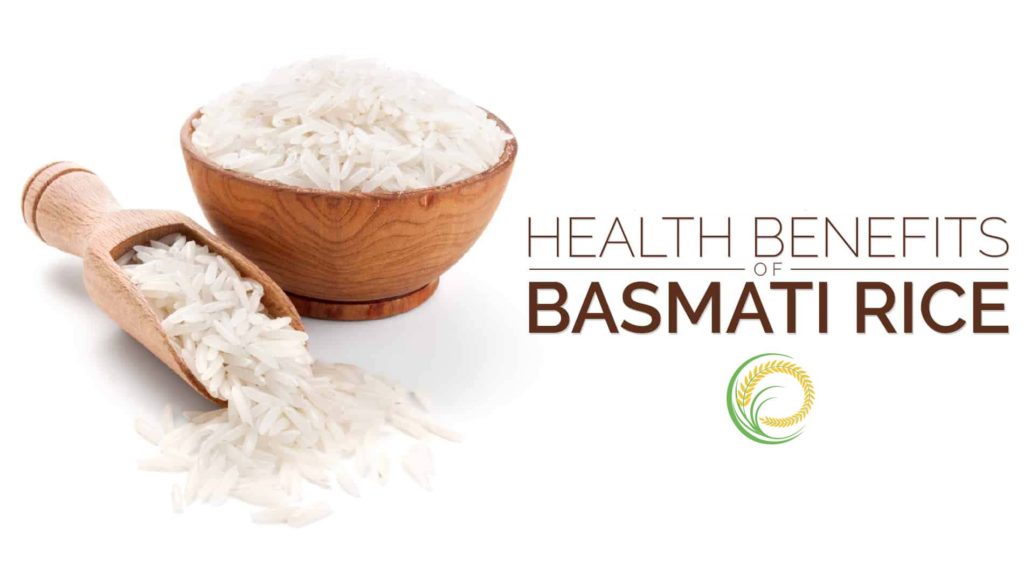
Basmati is typically characterized by its superfine kernels, exquisite aroma, great taste, silky texture, delicate curvature and linear kernel elongation. The aroma of Basmati is unique and imparts its novel characteristic that is unmatched by any other grain elsewhere in the world. Science tells us that Basmati grains contain 12 times more concentrations than those found in other rice varieties and are enough to give Basmati its distinctive rich fragrance. Basmati is considered as the world’s best rice with following attributes:
- Gluten free
- Low in fat
- Contains all eight essential amino acids and folic acid
- Very low in sodium
- No cholesterol
- Non – allergic
- Rich in complex carbohydrates
Benefits
The primary health benefits of Basmati Rice are – Prevents Cancer Cells, Reduce risks of Diabetes, Help Maintain Weight, and Controls Cholesterol and also reduce Heart Disease Risk.
Nutrition/Health
Basmati rice is an excellent source of magnesium, phosphorus, manganese, selenium, iron, folic acid, thiamine and niacin. These are excellent Source to maintain human metabolism.
Taken from the Sanskrit word for “fragrant” or “perfumed one,” basmati is known for its sweet aroma, soft, luxurious texture and distinctive long, curved grains. Basmati is one of the most treasured grains, and it’s grown only once a year. The fertile alluvial soil, fresh cold air and the sweet water contribute primarily to the unique characteristics associated with the grain. It is a remarkably long variety of rice and has a distinct aroma and discrete nutty taste. When cooked, the Basmati is more extended, lighter and fluffier than standard white rice, and does not stick together.
